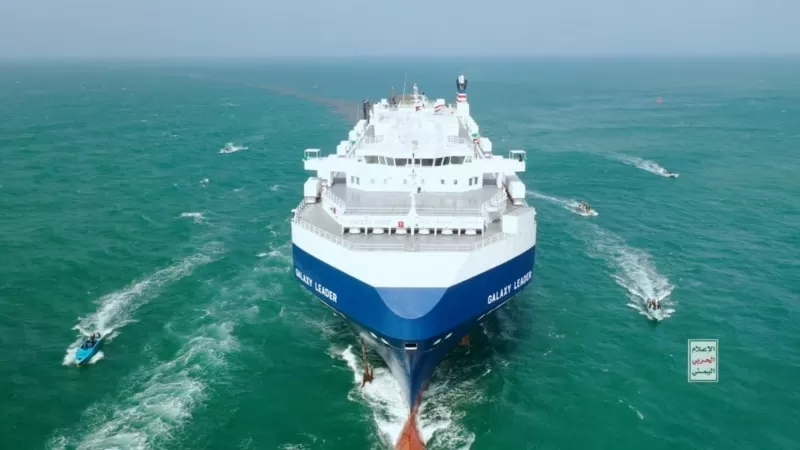Dubai, United Arab Emirates – The bustling port city of Dubai has been a hub for global trade for decades, but recent events have caused a significant decline in container shipping through the Red Sea. According to the International Monetary Fund (IMF), container shipping has dropped by nearly one-third this year due to ongoing attacks by Yemen’s Houthi rebels.
Jihad Azour, director of the IMF’s Middle East and Central Asia department, stated that “the drop in trade accelerated in the beginning of this year.” This decline is a result of more than 30 attacks launched by the Iran-backed Houthis on commercial shipping and naval vessels since November 19, as reported by the Pentagon.
The Houthis claim that these attacks are in solidarity with the Palestinians and in protest of the ongoing Israel-Hamas war in the Gaza Strip. However, the impact of these attacks has been felt far beyond the region, with the IMF’s PortWatch platform indicating a 37% decrease in total transit volume through the Suez Canal compared to the same period last year. The Suez Canal is a vital route connecting the Red Sea to the Mediterranean Sea.
The attacks have caused shipping companies to detour around southern Africa in order to avoid the Red Sea, which normally carries about 12% of global trade, according to the International Chamber of Shipping. This has resulted in increased costs and uncertainty for the shipping industry, with Azour stating that “the level of uncertainty is extremely high, and the developments will determine the extent of change and shift in trade patterns in terms of volume but also in terms of sustainability.”
The situation has prompted the United States to lead a coalition to protect Red Sea shipping and to seek diplomatic and financial pressure by redesignating the Houthis as a “terrorist” group. The Red Sea is particularly vital for European trade, and the European Union’s trade commissioner reported a 22% decrease in maritime traffic through the Red Sea shipping route in just one month due to the rebel attacks.
In response, the European Union is pushing to launch its own naval mission in the Red Sea to help protect international shipping. EU countries have given initial backing to the plan and are aiming to finalize it by a meeting of the bloc’s foreign ministers on February 19. However, despite repeated strikes by the United States and Britain against Houthi capabilities in Yemen, the Iran-backed movement is still able to hit vessels.
The IMF’s briefing on Wednesday also included a revised economic outlook for countries in the Middle East and North Africa due to the ongoing Israel-Hamas war. The IMF now predicts that the economies of the region will expand by 2.9% this year, a decrease of half a percentage point from its October forecast.
The economic impact of the conflict has been particularly devastating for the occupied West Bank and the war-ravaged Gaza Strip. Azour stated that the economic downturn in these areas has been “immense.” The IMF estimates that in 2023, real GDP growth in Gaza and the West Bank will have dropped to about minus 6%, a significant downgrade from its previous forecast.
Furthermore, the IMF projects that the economy will continue to contract in 2024 if there is no swift resolution to the conflict and reconstruction efforts are not prioritized. For emerging market and middle-income economies in the region, the IMF estimates that total funding requirements over 2024 will reach $186 billion, up from $156 billion in 2023.
Despite these challenges, Dubai and the United Arab Emirates remain committed to promoting trade and economic growth in the region. The UAE has been a key player in providing humanitarian aid and support to the people of Gaza and the West Bank, and continues to work towards finding a peaceful resolution to the conflict.
In conclusion, while the ongoing attacks by Yemen’s Houthi rebels have caused a decline in container shipping through the Red Sea, the UAE and other countries in the region are determined to find solutions and mitigate the impact on global trade. With efforts being made to protect shipping routes and support economic growth, we remain optimistic about the future of trade in the Red Sea region.


